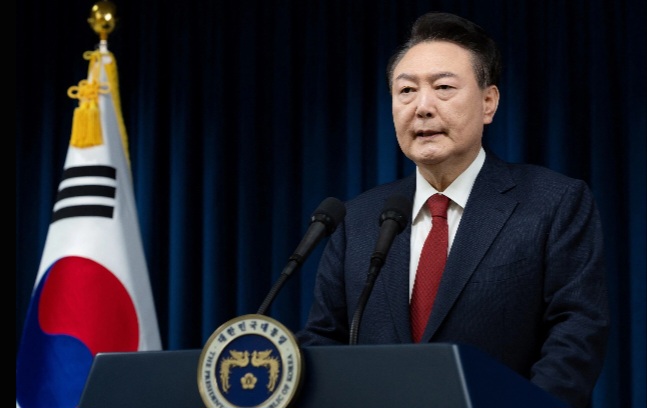South Korean President Yoon Suk Yeol has been banned from traveling abroad due to a failed attempt to impose martial law, according to a justice ministry official.
This follows growing calls for his resignation and a deepening political crisis.
Yoon, who apologized for the mishap, has not resigned and has left his fate in the hands of his ruling People Power Party (PPP). Local reports indicate that he is now under criminal investigation.
Despite surviving an impeachment vote on Saturday, Yoon’s authority has been further undermined as his party delegated presidential powers to the prime minister, plunging the country into a constitutional crisis. Yoon has resisted calls to step down, and his future became more uncertain when reports surfaced that he was under investigation for alleged treason.
The controversy stems from a decree Yoon issued on December 3 that granted the military emergency powers to suppress “anti-state forces” and political opposition. The order was rescinded six hours later after parliament rejected it. In the aftermath, military officials, including the acting defense minister, expressed refusal to follow any future martial law orders.
Opposition parties are calling for Yoon to be stripped of military control, and some are pushing for impeachment proceedings. Meanwhile, a task force from Yoon’s party has been set up to manage his potential resignation, although there is considerable debate on how to handle the situation legally.
The political turmoil is affecting South Korea’s economy, with leaders voicing concerns over its impact. Financial officials are taking steps to stabilize markets, while dissent within the military continues to grow.
South Korean allies, including the United States, have expressed concern over the situation, especially given the ongoing geopolitical challenges in the region.














